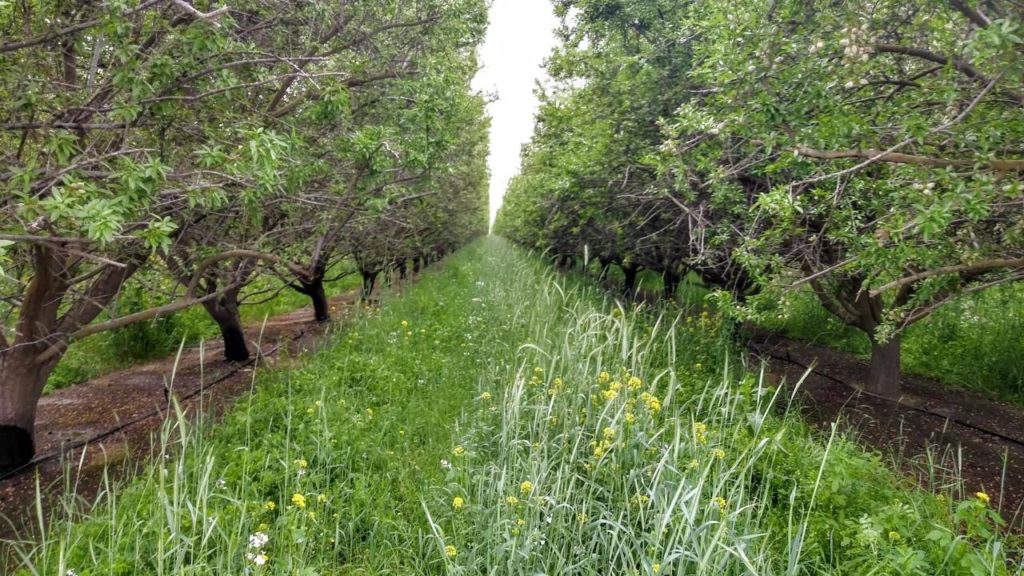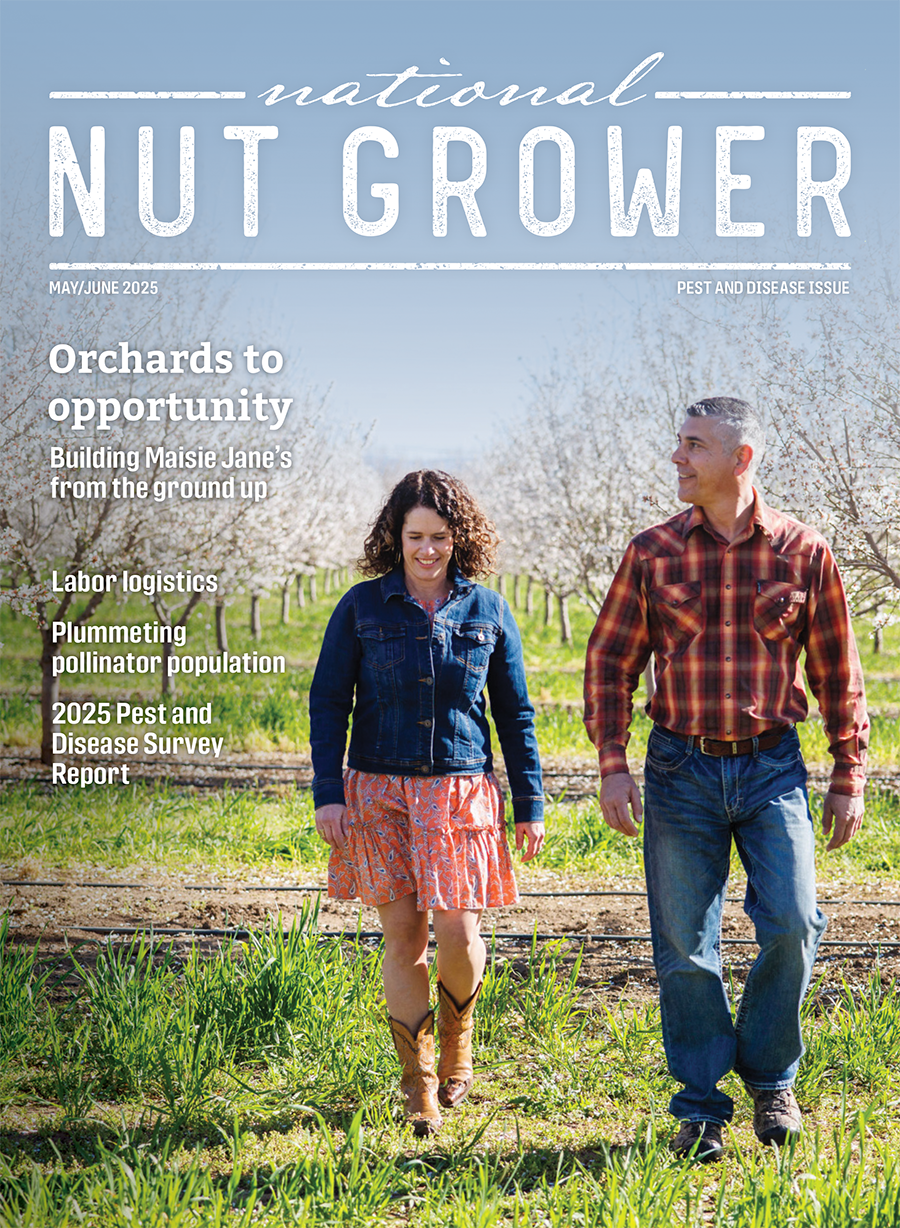
Feb 11, 2021NIFA grant set for cost-benefit analysis of winter cover crops in almonds
The National Institute for Food and Agriculture, or NIFA, has awarded Amélie Gaudin, associate professor in the Department of Plant Sciences at the University of California, Davis, an Agricultural Systems Research grant totaling $500,000.
Gaudin was one of 12 researchers from across the country to receive the grant, which funds projects developing innovative and sustainable solutions to problems facing agriculture and is part of the larger Agriculture and Food Research Initiative .
Over a four-year period, Gaudin will conduct a comprehensive cost-benefit analysis of winter cover crops in California almond orchards, a largely overlooked component in agricultural production systems. She will be joined by an interdisciplinary team of UC Davis colleagues, including bee ecologist Neal Williams, nematologist Amanda Hodson, economist Brittney Goodrich, and cooperative extension specialists Brad Hanson and Houston Wilson; together, they will provide an integrated, comprehensive understanding of how cover crops function in established orchards.
While Gaudin notes there has been an upsurge in interest for winter cover crops, since they can help reconcile both the environmental and economic goals of agricultural production, they are still not widely adopted.
“Despite its potential benefits, adoption of cover crops in almond orchards is low, because operational constraints and lack of data on benefits and tradeoffs remain significant barriers to adoption,” said Gaudin.
Forming the basis of their research, the team will conduct field experiments to quantify the various impacts cover crops have on ten different ecosystem services, such as enhanced pollination and soil health. From these findings, they will determine the costs and benefits of various management scenarios within almond production systems and will work with growers, conservation agencies, commodity groups and other stakeholders to draft best management practices.
By deepening the understanding of the dynamics between winter cover crops and almond orchards, and how they can be appropriately applied on the ground in almond orchards across California, this research will greatly benefit the efficiency and sustainability of almond production systems.
Additionally, the findings of this project may reach even beyond the Golden State and may more broadly address a growing body of research that warns of severe hardships for agricultural systems unless agricultural efficiency and resiliency is generally improved.
“By tackling almond production systems, this research could have a large impact across landscapes in semi-arid climates, as the areas, in which this high value specialty crop is grown, continue to expand,” said Gaudin.
– Matt Marcure, Communications, Department of Plant Sciences









